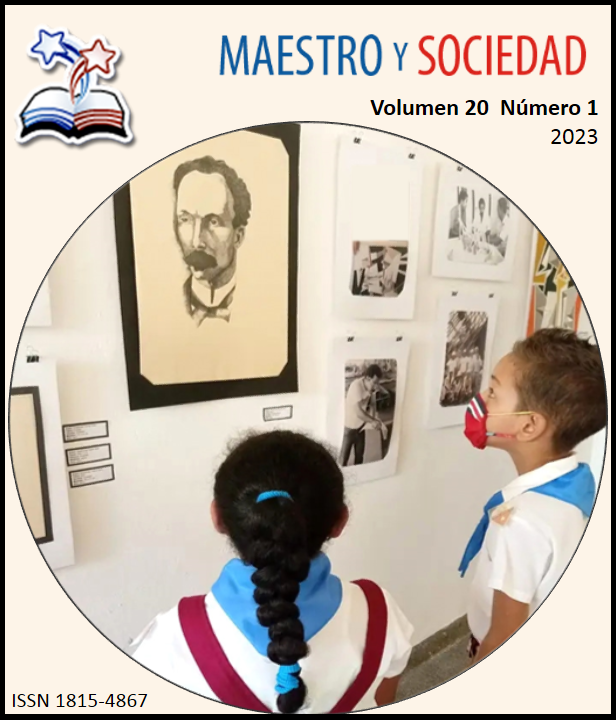Training strategy in intellectual property for entrepreneurs
Training strategy in intellectual property for entrepreneurs
Keywords:
Entrepreneurs, training strategy, intellectual propertyAbstract
Introduction: The conception of the Cuban state to improve business competitiveness and the search for financial and business assets in the forms of state and non-state management, with the institutionalization of small and medium-sized companies, and the relationship of this commercial denomination mediated by the uses of intellectual property as a legal tool to generate business assets. The objective of this article is the formation of a business and intellectual property culture.
Materials and methods: As part of the initial diagnosis, surveys were applied to an intentional sample of 49 self-employed workers, 2 MSMEs, professors and researchers belonging to the Faculties of Economic and Business Sciences of the Universidad de Oriente.
Results: The intellectual property training strategy for entrepreneurs, as a practical instrument, through its stages and actions, favors the quantitative and qualitative transformation of the investigated object, allows a sufficient level of systematization of the projective-transformative aspect of the business management of this new economic actor of the Cuban economy.
Discussion: The teacher is not only the researcher, but is capable of managing and collaborating for the registration, protection, socialization and transmission of scientific-intellectual goods, creates a culture and is capable of collaborating in the management of its results, revealing as a superior quality of this professionalization in intellectual property, where the functions of the entrepreneurial teacher are established, which are: developing intellectual creativity, increasing innovative competences, increasing inventive activity, increasing investigative competences, generating scientific results, collaborating for the registration of those results, create a culture in intellectual property, recognize the scientific-innovative-technological results, identify the intellectual good.
Conclusions: The application of the strategy with MSME entrepreneurs from the Santiago de Cuba province, allowed to corroborate their low culture in intellectual property, and incipient insertion within the product portfolios of these entrepreneurs.
References
Baylos, C. (2009). Tratado de Propiedad Industrial. Universidad Complutense de Madrid, Civitas-Thomsom Reuters.
Encabo, M. (2019). Propiedad intelectual y acceso a la información digital. Nuevos desafíos para las universidades españolas y portuguesas. México DF, Madrid: Editorial Reus.
González P., M., García C., J. y Pierra C., A. (2018). Política de ciencia tecnología e innovación y formación doctoral y sus tradiciones para la educación superior. En 11no Congreso Internacional de Educación Superior Universidad 2018. (78). Ed: Félix Varela.
López, C. (2020). Propiedad Intelectual: Una gestión legal creativa. Andalucía: Aad Diseñadores de Andalucía. http//www.aad-andalucia.org
República de Cuba. (2016). Lineamientos de la política económica y social del partido y la revolución para el período 2016–2021. http://www.granma.cu/file/pdf/gaceta/Lineamientos%2020162021%20Versi%C3%B3n%20Final.pdf
República de Cuba. (2021a). República de Cuba. Decreto No. 46 de 2021. Gaceta Ordinaria No. 94 de fecha 19 de agosto de 2021. Ministerio de Justicia.
República de Cuba. (2021b). República de Cuba. Decreto Ley No. 49 de 2021. Gaceta Ordinaria No. 94 de fecha 19 de agosto de 2021. La Habana: Ministerio de Justicia.
Tarragó A., R. M. et al. (2019a) Registro de patentes, herramienta para la profesionalización del licenciado en Química. Revista Maestro y Sociedad, 16(1), 48-56. http://maestroysociedad.uo.edu.cu
Tarragó A., R. M., et al. (2019b). Formación posgraduada de los profesores universitarios en propiedad intelectual, actualidad y transformación. Revista Maestro y Sociedad, 16(4), 744-752. http://maestroysociedad.uo.edu.cu
Tarragó A., R. M., et al. (2019c). La profesionalización de los profesores universitarios para la gestión de la propiedad industrial. En Memorias de la I Convención Internacional Ciencia y Conciencia. (179-185). Ediciones UO.
Downloads
Published
How to Cite
Issue
Section
License
Copyright (c) 2023 Nahilce Bhamel Alomá, Reynaldo Manuel Tarrago Ayra

This work is licensed under a Creative Commons Attribution-NonCommercial-NoDerivatives 4.0 International License.
This journal provides immediate open access to its content, based on the principle that offering the public free access to research helps a greater global exchange of knowledge. Each author is responsible for the content of each of their articles.



























 Universidad de Oriente
Universidad de Oriente 